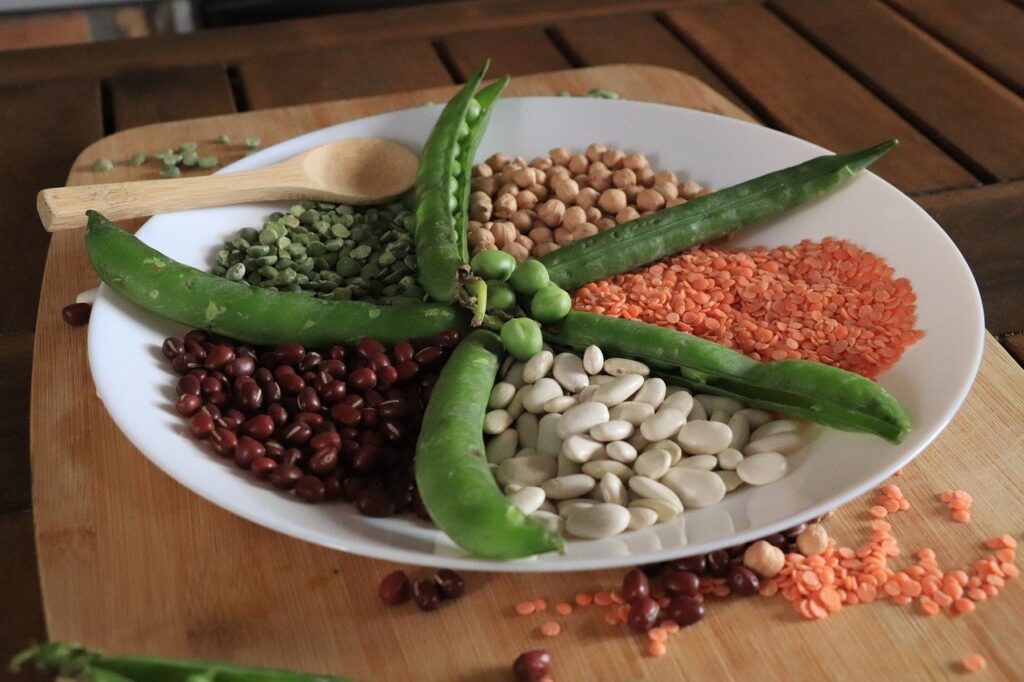
Image by Sandie Barbot from Pixabay
Episode Summary
When you think of protein, do you imagine a bicep muscle flexing or a bodybuilder lifting weights at the gym? Maybe you picture plates full of steak, eggs, or cheese. While these are common sources and uses of protein, its range of capabilities extend far beyond the usual associations. The macromolecule is also necessary for bone health and immune functions – and of course, you can obtain plenty of it from a plant-based diet.
To uncover the complexities of protein, I am joined by Vesanto Melina, MS, RD. Vesanto is a registered dietitian and best-selling author of multiple plant-based nutrition books. In this episode, she outlines the amount of protein intake to strive for each day.
For a plant-based diet, Vesanto recommends consuming 0.9 grams of protein per kilogram of healthy body weight.
“That’s pretty easy to obtain, especially if somebody is on a whole-foods, plant-based diet.”
Some groups, like seniors, children, and pregnant women, may require slightly higher levels of protein intake. Still, this recommendation meets the needs of 97.5% of the population, and as Vesanto describes, the body knows how to economize protein for optimal use.
She also explains how the absorption process for protein is distinct from other nutrients because it can occur throughout several places in the intestine. By following these nutrition guidelines and engaging in regular physical activity, you can improve your musculoskeletal health and your overall longevity.
“You really do need to [use the muscles] to keep them strong, and then it helps to eat some good protein foods, especially ones that have leucine or the branch chain amino acids in them… As we get older, we avoid sarcopenia, or muscle wasting, which happens to some seniors.”
Listen to the full episode to demystify the protein puzzle and learn how you can make informed decisions on your protein intake.
Here are the details of our conversation:
[00:01:12] Why does the body need protein?
[00:02:57] What happens if we don’t get enough protein?
[00:04:21] The protein absorption process
[00:06:21] Recommended protein intake metrics
[00:08:52] What happens if we get too much protein?
[00:09:46] Recommendations for seniors
[00:11:09] Protein, movement, and muscle mass
[00:14:28] Recommendations for athletes
[00:16:17] History of evaluating protein quality
[00:19:40] Obtaining protein through diet
[00:21:36] Comparing plant-based protein to animal-based protein
[00:25:06] Meal-planning for plant-based protein
[00:31:47] Protein powders and supplements
[00:34:22] Health, environmental, and nutritional benefits of plant-based eating
Episode Notes
Vesanto Melina, MS, RD, is a sought-after speaker at health conferences worldwide. A consultant for individuals as well as the government of British Columbia, she is the lead author of the last position paper on vegetarian diets for the Academy of Nutrition and Dietetics. Also, Vesanto received the prestigious Ryley-Jeffs Memorial Award from Dietitians of Canada. She resides in Vancouver, Canada, with her partner, Cam.
Links:
Order Vesanto’s latest book, Plant-Powered Protein: Nutrition Essentials and Dietary Guidelines for All Ages, here
Connect with Vesanto at her website, nutrispeak.com
Learn more about Vesanto’s cookbooks at becomingvegan.ca, plant-poweredprotein.com, and kickdiabetescookbook.com